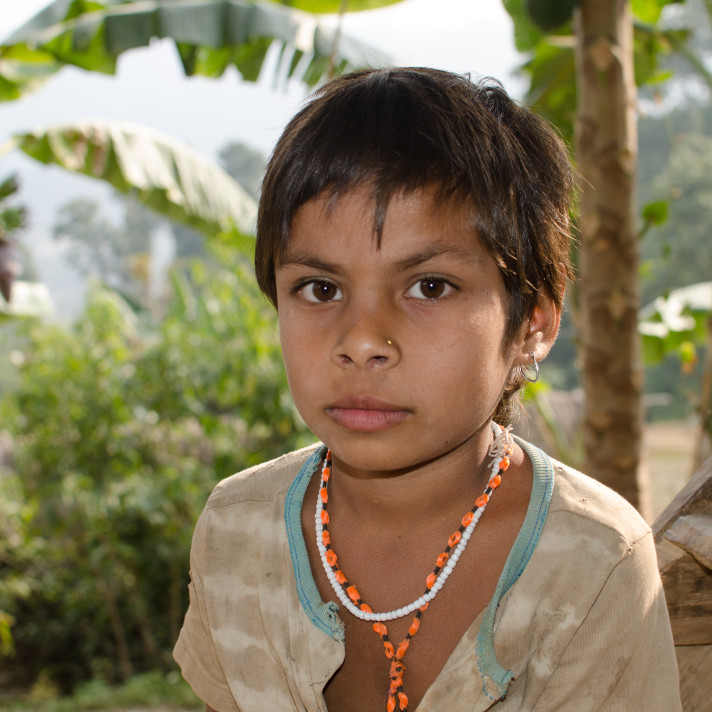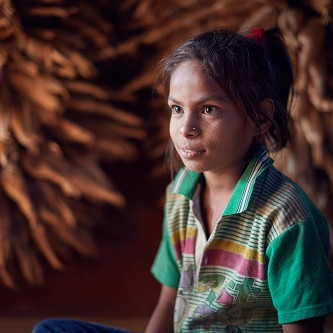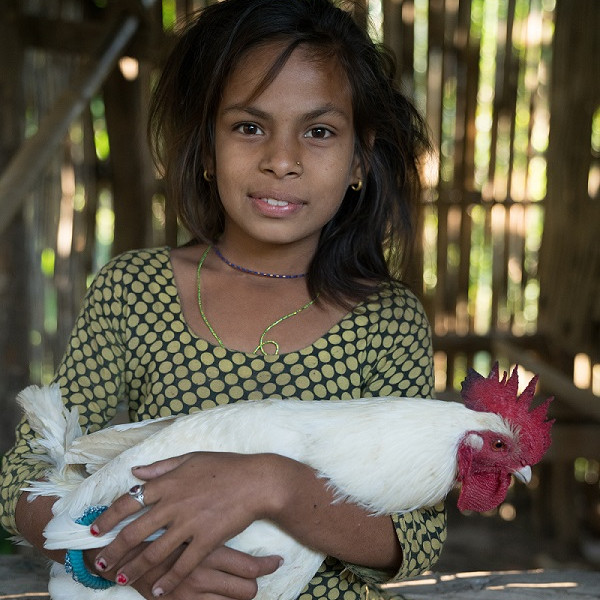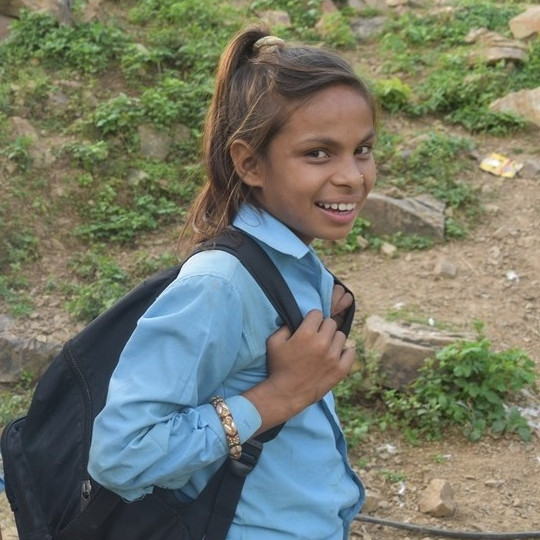When we first met Anjali back in 2014, she wasn’t going to school regularly because she had to stay home and look after her younger siblings while her mother worked.
Her dream was to be a teacher, but that seemed all but impossible.
Anjali’s mother Binda is a widow and a Dalit, or “Untouchable”. In 2010, Binda’s husband committed suicide. She believes that a stint as a migrant worker took a toll on his health and he never recovered. He always complained of headaches. When her husband passed away, she had four children of her own and her sister’s son whom she had adopted to take care of.
Her husband also left behind almost 2 lakhNPR (2000 USD) worth of loans which Binda didn't know he owed to neighbours and relatives. She took another loan to send her oldest son to Malaysia to find work, while unstable conditions at home forced her second son to drop out of high school.
Her two youngest children, Anil and Anjali, were too small to understand about their father’s death. Anjali was particularly close to her father because he doted on her. She was only four when her father passed away and for months she asked for her father.
Binda told us, “My children are called orphans and I hear people humiliating them but it's the children who pacify me and say that I should not worry too much. They see me crying sometimes and they calm me down.”
We’ve kept in touch with Anjali and her mother throughout the project to see how they got on…
2014
In Grade 2, Anjali came first in her class! She’s very serious about school and especially likes her science class. After school, Anjali has to take the family’s seven goats out to graze, then sweep the house, collect water from the river, wash the dishes and bring in fodder for the livestock. Only then will she have time for studying, but she won’t go to bed until she’s finished all her homework.

2015
Anjali’s mum Binda hasn’t been able to pay off her loans yet because the interest has just kept increasing, and the son that works abroad has stopped sending her money because he’s not earning much anymore.
Anjali came third in her third-grade class this year, not quite good enough to secure the discount on school fees that the first-place-getter receives. Binda told us, “The stationary she gets [as part of the project] helps me to some extent but the responsibility of her school fees and additional expenses trouble me the most”.

2016
Anjali is 10 years old and in grade four this year. Her older brother who works in Kathmandu has gotten married and had a son recently, so his new wife and baby live in Udayapur with Anjali’s family. Anjali loves her little nephew, and spends most of her time after school taking care of him.
Anjali’s mum is now a member of the project’s farmers group, which helps people start new agricultural businesses and trains them on new techniques. They helped her to start a chicken farm and after six months she’s making about 4,000 rupees. Anjali helps her mum by feeding the chickens each day.
She’s been working very hard on her schoolwork, and even turned down the offer of a TV because she didn’t want it to affect her studies.

2018
Sixth-grader Anjali has switched to a new school this year since the one in her village only goes up to grade five. It takes her nearly an hour to get to school each day, but it’s worth it. She thinks the new school has helped improve her math skills significantly, and she’s even joined extra coaching classes. She still has trouble with English though.
Through the project, a water tap has been installed near her house, so she no longer has to drag jugs of water up the hill. Her mum has built a plastic greenhouse, complete with drip irrigation, to cultivate vegetables. Anjali is excited to sell the veggies at the market like other villagers do.
She still has to take the goats for grazing after school.


